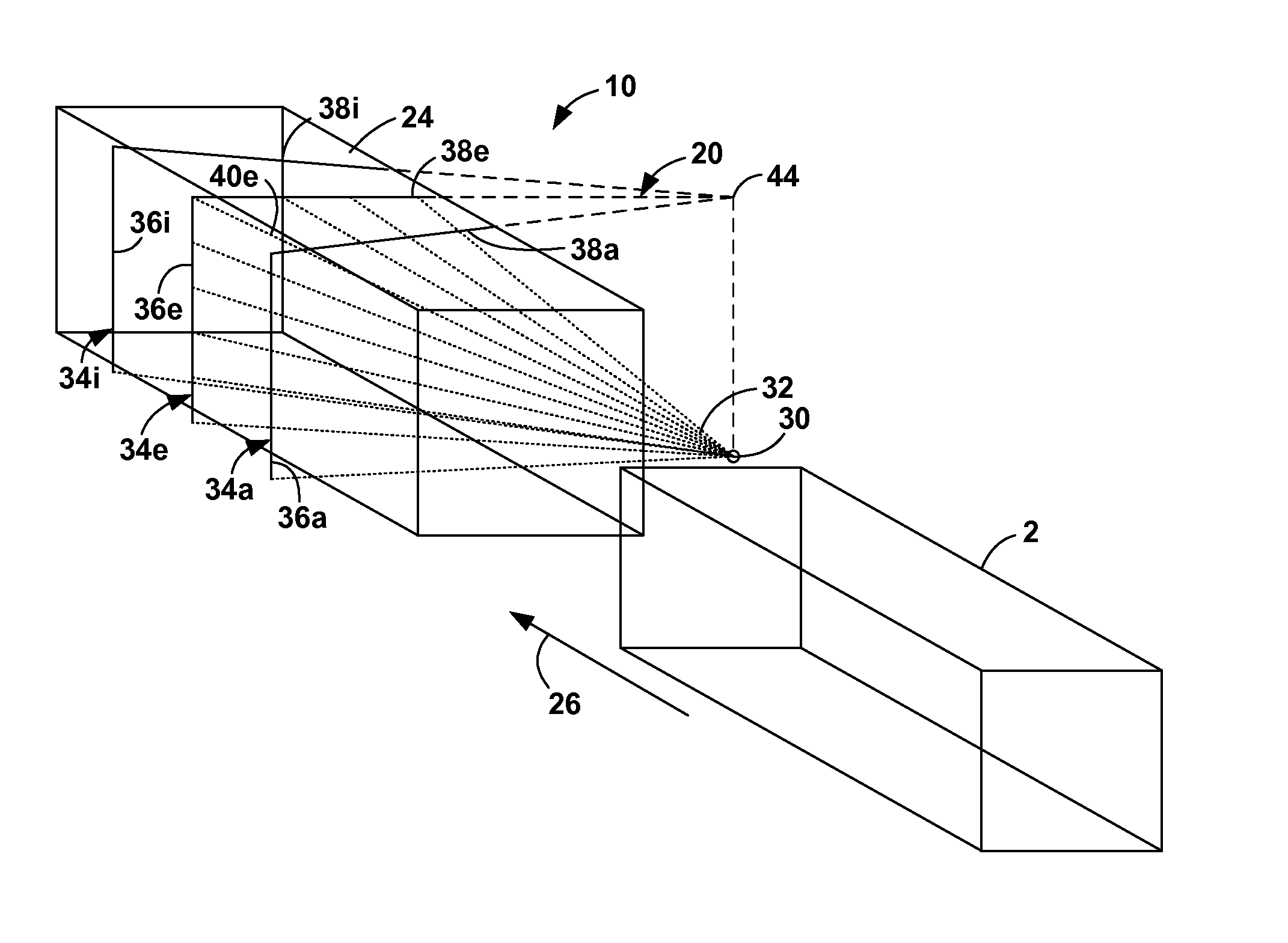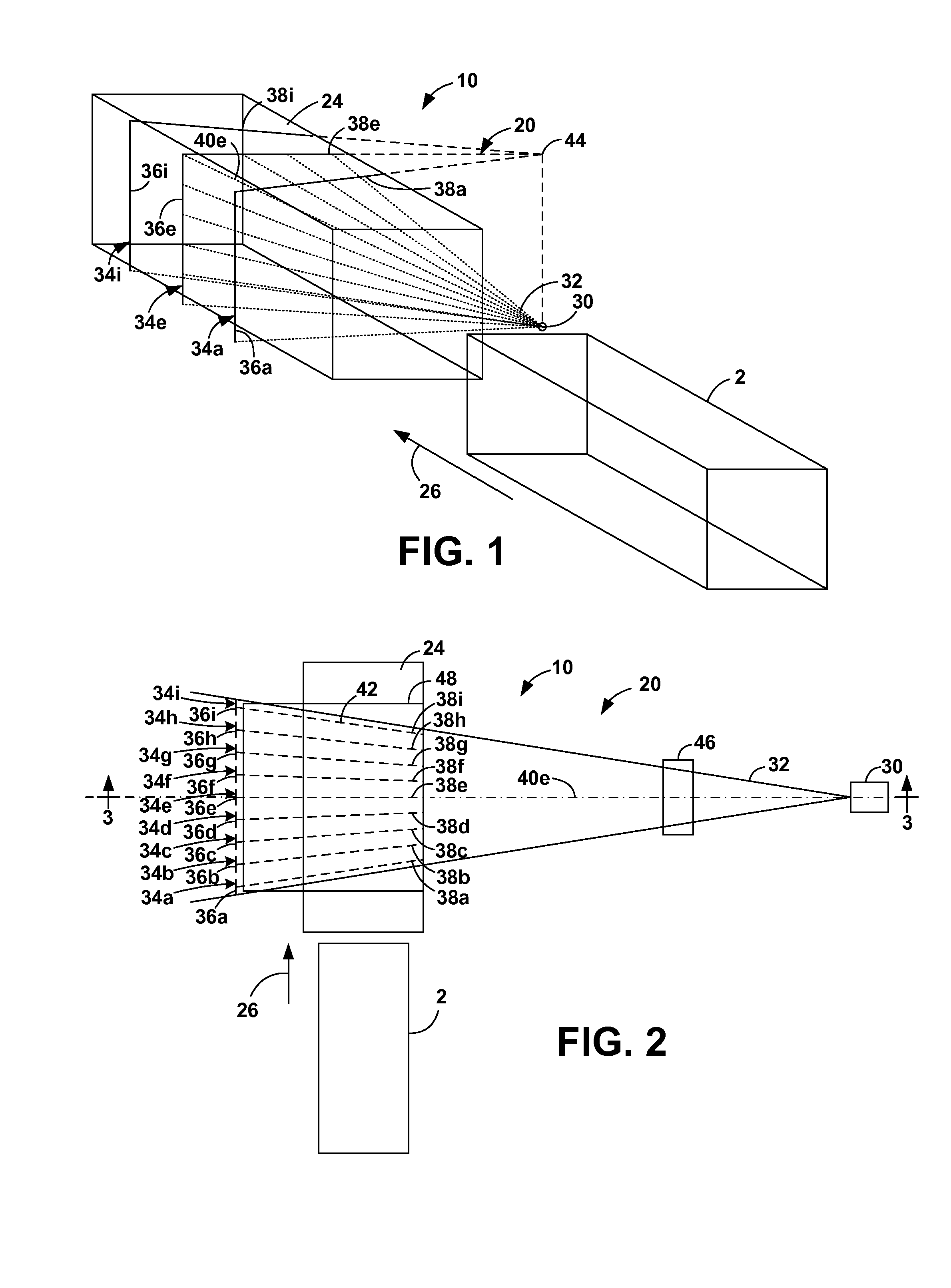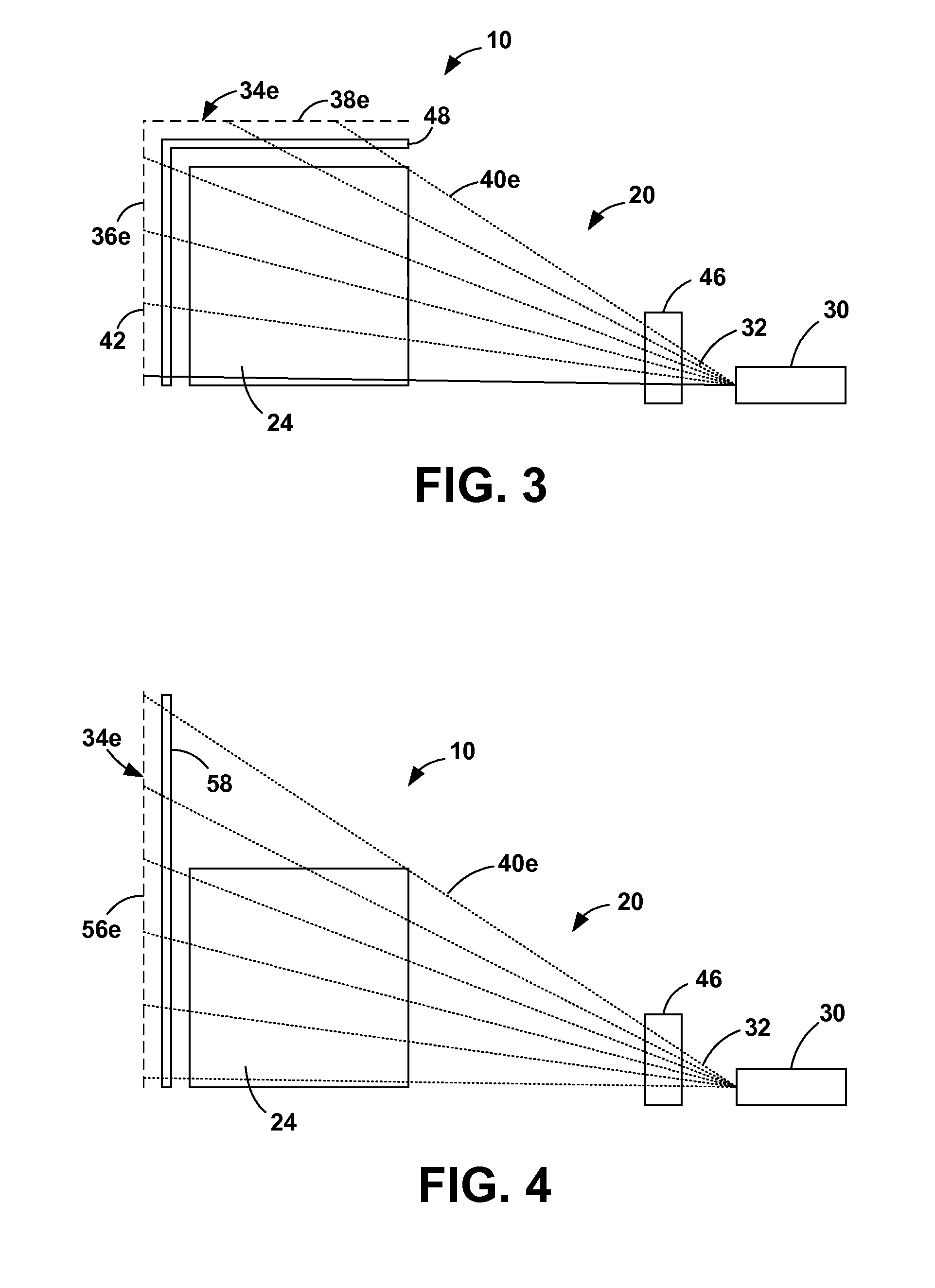Method for detecting a nuclear weapon in a shipping container or other vehicle using x-rays
- Summary
- Abstract
- Description
- Claims
- Application Information
AI Technical Summary
Benefits of technology
Problems solved by technology
Method used
Image
Examples
Embodiment Construction
[0028]The present specification describes two inventions. The first is an apparatus and method for using lower power x-ray sources for inspecting sea cargo containers and other transportation vehicles. The second invention is a method of substantially improving the current state of the art in x-ray inspection of sea cargo containers, particularly in the detection of nuclear weapons.
[0029]Using Lower Power X-Ray Sources
[0030]A system 10 to inspect sea cargo containers is shown in FIGS. 1-4. The object 2 moves in a longitudinal direction of motion 26 through an imaging region 24. A 6 MeV x-ray source 30 emits a cone beam 32 into the imaging region 24 from outside of the imaging region 24. A plurality of x-ray detector assemblies 34a-i (collectively, 34) are located outside the imaging region 24 opposite the x-ray source 30. Each detector assembly 34 includes a plurality of relatively large detector elements 42 and defines an x-ray fan beam 40a-i (collectively, 40) within the imaging r...
PUM
 Login to View More
Login to View More Abstract
Description
Claims
Application Information
 Login to View More
Login to View More - R&D
- Intellectual Property
- Life Sciences
- Materials
- Tech Scout
- Unparalleled Data Quality
- Higher Quality Content
- 60% Fewer Hallucinations
Browse by: Latest US Patents, China's latest patents, Technical Efficacy Thesaurus, Application Domain, Technology Topic, Popular Technical Reports.
© 2025 PatSnap. All rights reserved.Legal|Privacy policy|Modern Slavery Act Transparency Statement|Sitemap|About US| Contact US: help@patsnap.com



